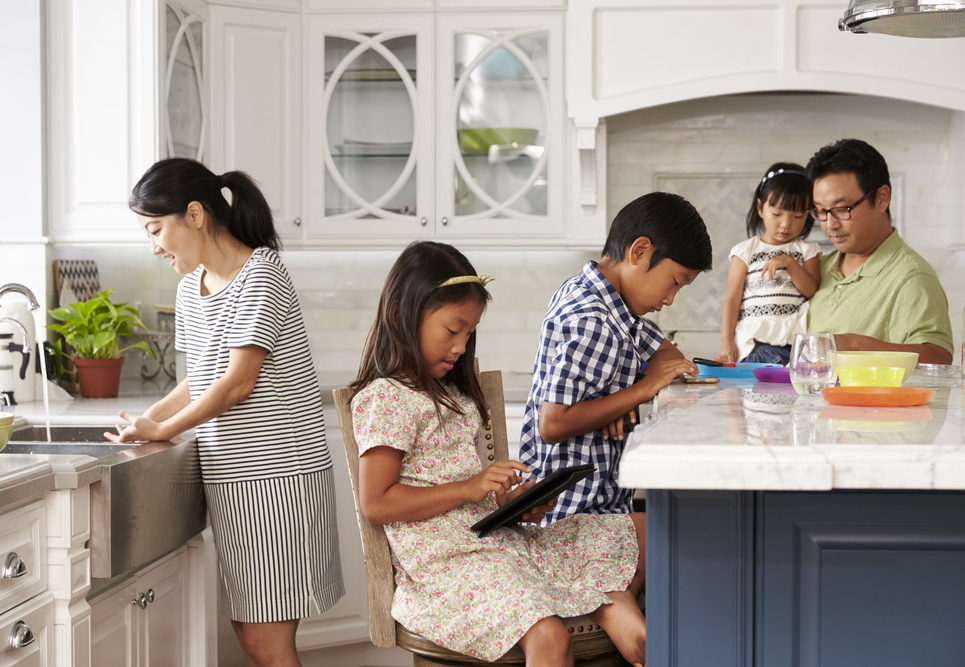Feeding Families
Family Routines
The greatest influence on our children’s eating and activity patterns is the family routine. New habits take time to develop, so don’t expect them to change overnight. Choose those you feel your family can manage and gradually introduce others. Here are our top picks for positive family routines.

Family meals
Sharing family meals encourages children to eat a wider variety of food and develop healthy behaviours. In busy families it may not be possible to do this every day, but sitting down together to enjoy a meal whenever it’s possible for your family is an important habit. Pick a meal when everyone is home and start the habit. Tip: it doesn’t have to be dinner.
Offer 3 main meals and 2-3 mid-meals a day
Allowing a break between meals and snacks helps children recognise their hunger and fullness. Having set meals and snacks helps avoid constant grazing and once a pattern is established, children will understand that food will be offered every 2-3 hours and are less likely to nag you about food all day!
Choose water as the main drink
Offer water throughout the day and avoid keeping fruit juice, cordial, flavoured water and soft drinks in the house. If your family enjoys these drinks, buy them for special occasions so they don’t become a habit. If children are consistently eating very little at meal and snack times, and are instead filling up on milk, it will help to swap out some of their milk intake for water.
Be clear about screen time
Children are increasingly spending more time on screens (smart phone, tablet, computer, TV, gaming console). Have clear rules in your house which help limit screens to less than 3 hours a day. And remember children will notice your screen use, so ensure the rules you set can apply to everyone.
Note: Work-related screen time use will need to be considered separately when making the rules or things could get very tricky!
Choose snacks carefully
There is a tendency to think of snacks as packaged food, which are often less healthy than meals. If your child is filling up on snacks that don’t provide much nutrition, think outside the square and offer mealtime foods for snacks.
Be an active family
Get out and get active as a family in whatever form that takes.
Plan ahead
Planning meals can seem overwhelming, but it saves money and time, reduces stress, improves nutrition and contribute to calmer mealtimes. In busy families, it can help the week go more smoothly with one less thing to coordinate. Start with 1 or 2 meals a week to build the habit. The benefits might surprise you!
Would you like more support?
Click Get Support to match your needs with the appropriate level of support.
Further support
Find an Accredited Practising Dietitian with experience in infant and child growth - https://dietitiansaustralia.org.au/find-an-apd/
